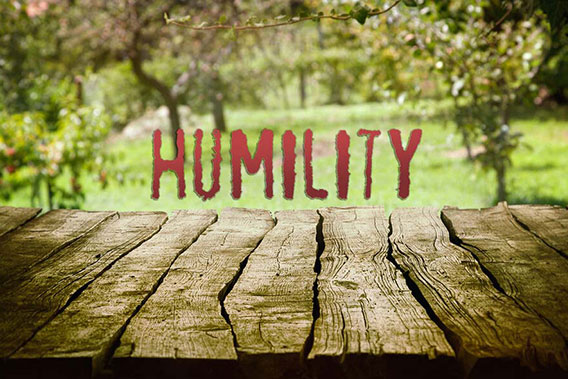“Humility is the fear of the Lord; its wages are riches and honor and life.” – Proverbs 22:4
To think one will become rich by living humbly never enters the mind of one who truly is. They have no thought of riches and honor as the earned reward for humility. They are humble out of a profound sense of their own poverty. Yet the wisdom of Solomon states the wages of humility are riches, honor, and life.
I recently attended the awards ceremony as a guest for 13 new inductees of the Horatio Alger Association. There have only been 608 members inducted since its formation 69 years ago. 300 members still live. An average of 10 are inducted each year and an average of 10 die each year. New members are always of advanced age, so they are never members for a life-time.
The three days of the awards events are spectacular, planned to perfection, and truly inspiring for those in attendance: members, their guests, and the high school seniors who earn Horatio Alger scholarships that year; all of which are quite generous, and offered to winning applicants who have overcome significant adversity already in their young lives. Supreme Court Justice Clarence Thomas has presented the awards to the new members for the past 24 years in the court room of the Supreme Court. Tom Selleck and Lou Dobbs, both members, have been the masters of the award ceremony and formal dinner the following evening since the 90’s. But one of the remarkable traits of the new members who are chosen for their character, for overcoming adversity, rising from nothing and becoming truly successful, often to great wealth, is the genuine sense you get in listening to them; they are normally people of humility.
But despite the fact they are both relatively humble and also have become wealthy, are these the riches and honor of which King Solomon speaks as being the wages of humility? The Gospel of Matthew expresses the nature of true “treasure”; “Do not lay up for yourselves treasures on earth, where moth and rust destroy and where thieves break in and steal, but lay up for yourselves treasures in heaven, where neither moth nor rust destroys or thieves do not break in and steal. For where your treasure is, there your heart will be also…No one can serve two masters, for either he will hate the one and love the other, or he will be devoted to the one and despise the other. You cannot serve God and money.” Is there a conundrum here? Is money-wealth truly a reward for a humble spirit? Or does wise Solomon have something completely different in mind?
When the author of Proverbs speaks of riches is it always or even ever referring to money-wealth, at least in this context, as wages for humility? Or is he referring to true riches; riches of the soul, of the spirit, riches which do not pass away, riches which remain throughout eternity? A rich man or woman, as many of the Horatio Alger Association Members, may be truly humble, but his or her money-wealth is incidental to genuine humility. Humility adorns the character of godly individuals whether rich or poor. In any case, a godly person will never live in abject poverty, seeing God’s promise that He will not allow His children to go begging bread; the promise is never for money-wealth for everyone of His children. In fact, Jesus said, it is harder for a camel to pass through the eye of a needle, than for a rich man to enter the kingdom of heaven.
The truly humble person will be rich in spiritual matters, luxuriating in peace with God, confident in the prospect of eternal reward; and, recognizing and appreciating those “riches” as coming to them personally from God’s hand. They consider themselves as mightily blessed beyond all deserving. These are the riches, honor, and life which are the wages of humility in the fear of God. Corruptible treasures are not comparable objectives of one who consistently fears the Lord; who being humble, never thinks he is. He has a poverty of spirit which eschews any permanently distracting yearning for money-wealth. It is enough; he is content with whatever God does or does not provide.
His treasure resides in being right with God and loving his neighbor as himself. His humility follows the example and attitude of Jesus’ mother, Mary, “Be it unto me according to your Word.” He walks in the wisdom of Micah 6:8: “He has told you, O man, what is good; and what does the Lord require of you but to do justice, and to love kindness, and to walk humbly with your God.” It is enough. It is his total satisfaction. It is the reward of humility.
“Hidden in the hollow of his blessed hand, never foe can follow, never traitor stand; not a surge of worry, not a shade of care, not a blast of hurry, touch the spirit there. Stayed upon Jehovah, hearts are fully blest, finding as he promised perfect peace and rest.”
(3rd verse of Francis Havergal’s hymn, “Like a River Glorious,” 1874)
Stay Updated
Sign up for our monthly newsletter and weekly devotional











